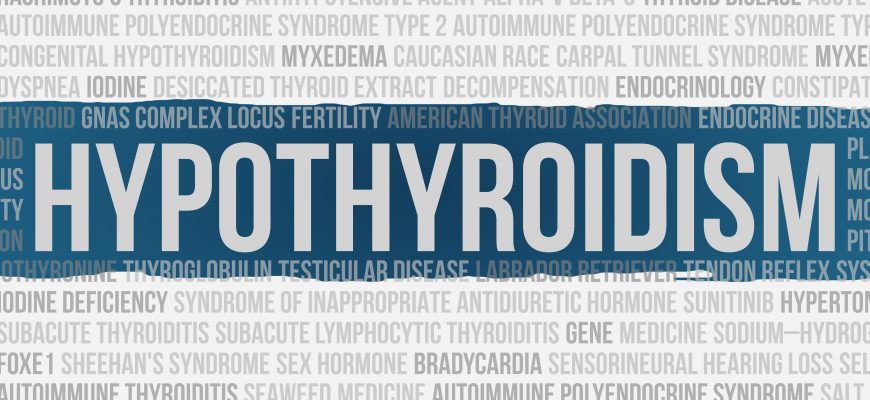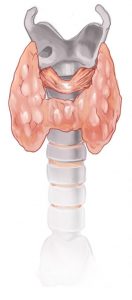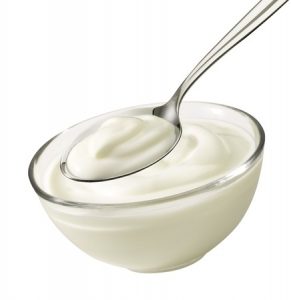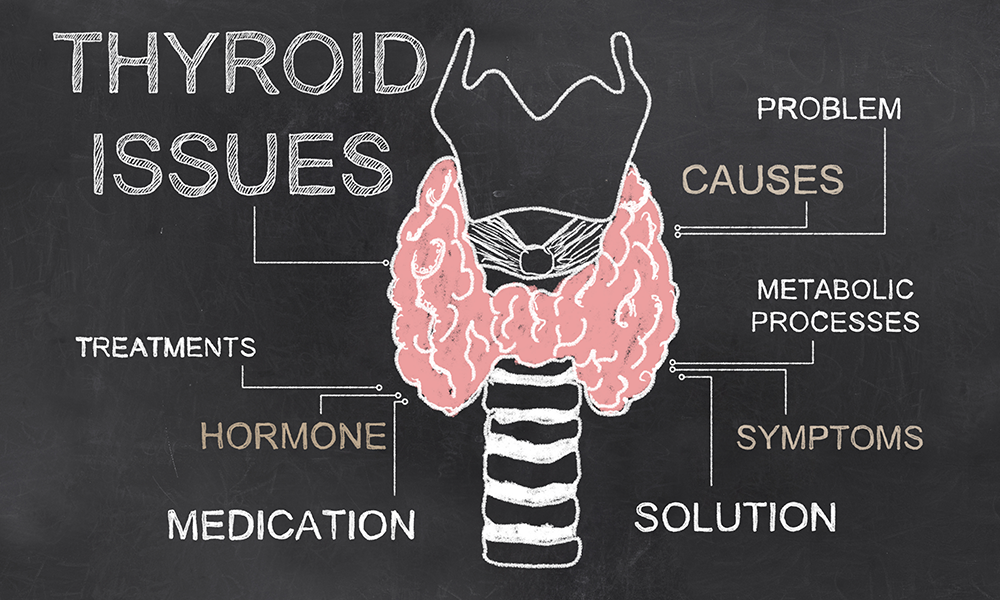Thyroid disorders affect about 200 million people in the world. They range from small problems (like goiters) to dangerous ones (like cancer). The most common thyroid disorders are a result of unusual production of thyroid hormones. The thyroid gland uses iodine to manufacture thyroxine (T4) and triiodothyronine (T3). Thyroxine is the main hormone created by the gland. After it is delivered to the body’s tissues through the bloodstream, a small amount is converted to triiodothyronine.
These two thyroid hormones are vital in controlling body temperature, body energy, the development of body tissues, and the body’s use of vitamins and other hormones. However, when there is an overproduction or underproduction of thyroid hormones, problems occur. Too much thyroid hormone causes hyperthyroidism while too little leads to hypothyroidism.
For the most part, thyroid disorders are treatable. While they may have unpleasant effects, they can be alleviated if they are properly diagnosed. Three common thyroid disorders include Hashimoto’s disease, Graves’ disease, and Goiters.
Hashimoto’s Disease
Hashimoto’s disease, also referred to as Hashimoto’s thyroiditis, occurs when the immune system falsely identifies the thyroid as a target and attacks the gland. This is known as an autoimmune condition. The immune system produces antibodies that wreak havoc on the thyroid gland. They gradually destroy the thyroid and affect its ability to produce hormones. According to the National Institutes of Health, Hashimoto’s disease is the leading cause of hypothyroidism in the US. It mostly affects middle-aged women but can also affect children, men, and women of all ages.
Causes
Scientists haven’t identified what makes the immune system to attack the thyroid gland, but they believe that these 4 factors play a major role.
Hormones: Hashimoto’s disease affects more women than men. Some women have a thyroid disease after delivering a baby (a condition that usually goes away) and a small number develop Hashimoto’s later on. This suggests that sex hormones may be involved.
Genes: Most people who suffer from Hashimoto’s thyroiditis have family members with thyroid disease or an autoimmune disease.
Too Much Iodine: According to research, too much iodine and some drugs may bring about thyroid disease. While iodine is needed by the body to manufacture thyroid hormones, too much of it can cause problems.
Exposure to Radiation: People who have been exposed to radiation – like the Chernobyl nuclear disaster and the atomic bombs in Japan – often suffer from Hashimoto’s disease. The disorder also affects some people who have undergone radiation therapy for Hodgkin’s disease.
Symptoms
Most people don’t know they are suffering from Hashimoto’s disease because it may be mild at first. Sometimes it takes years to develop. The first telltale sign is usually an enlarged thyroid (a goiter). The goiter can make the neck to appear swollen and a big one can make swallowing painful. Other symptoms of Hashimoto’s include:
- Constipation
- Muscle pain and joint pain
- Unexplained weight gain
- A pale or puffy face
- Fatigue
- Difficulty conceiving
- Depression
- Irregular or abnormal menstrual periods
- Slow heart rate
- Enhanced sensitivity to cold
- Painful and stiff joints
Graves’ Disease
This is one of the most common thyroid disorders. It gets its name from the doctor who first described it, Robert Graves. Graves’ disease is an autoimmune disorder that leads to overproduction of thyroid hormones. While there are other disorders that may cause hyperthyroidism, it is a leading cause.
In Graves’ disease, the immune system manufactures antibodies – called thyroid-stimulating immunoglobulins (TSIs) – that cause the thyroid gland to produce more hormones than the body needs.
Causes
While the main cause of Graves’ disease is yet to be identified, some researchers believe that genes may be the culprits. If someone in your family has Graves’ disease, chances are you may also get it.
Another aspect that makes one more likely to develop this autoimmune disease is gender. As stated on HealthLine, most autoimmune conditions affect women more than men, and Graves’ disease is no different. It mostly affects women over 20 years old, but even men and younger women can suffer from it.
Symptoms
- Weight loss
- Intolerance to heat
- Goiter
- Eye problems (such as double vision)
- Thick skin
- Bulging eyes
- Increased bowel movements
- Irregular menstrual periods
- Difficulty breathing and shortness of breath
- Chest pain and palpitations
- Insomnia and anxiety
Goiter
This is an unusual enlargement of the thyroid gland. While most goiters are painless, large ones can trigger a cough and make swallowing and breathing difficult. A goiter can be a small problem that may go away without medical intervention, or it might be a symptom of a serious thyroid condition that necessitates medical attention.
Causes
Hyperthyroidism or Hypothyroidism: Goiters can occur from both a result of too much or too little thyroid hormones. In rare cases, the disorder may occur when the pituitary gland triggers thyroid growth in order to increase production of hormones. At times, a goiter forms with normal production of thyroid hormone.
Too Many Goiter-Stimulating Foods: If your diet comprises too many goiter-supporting foods, a sporadic goiter may form. These foods include cabbage, spinach, soybeans, cauliflower, broccoli, and peaches. They can stifle the production of thyroid hormone by affecting the thyroid’s ability to process iodide. However, for this to happen, you have to consume large amounts of these foods.
Lack of Iodine: Without iodine, thyroid hormones cannot be produced. The element is found in seawater and coastal soil. Iodine deficiency was once the most common cause of goiter. However, it stopped being a threat when iodized salt was introduced. Iodine is also added to some foods.
Hashimoto’s Disease: When you suffer from hypothyroidism, the pituitary gland produces more thyroid-stimulating hormone, which may cause the thyroid to enlarge.
Graves’ disease: When antibodies created by the immune system attack the thyroid gland, it manufactures excess thyroxine. This over-activation makes the thyroid swell.
Pregnancy: During pregnancy, the body produces a hormone known as human chorionic gonadotropin (HCG) that may enlarge the thyroid gland.
Symptoms
- Difficulty breathing (at times accompanied by a high-pitch sound)
- Trouble swallowing
- Tightness in the throat
- Hoarseness
- Coughing
- Noticeable swelling at the base of the neck
- Pain in the thyroid area
These 3 common thyroid disorders affect millions of people, but many aren’t aware. It is important to know about them and their symptoms. This way, you can stop them before they become an even bigger problem.

 An underactive thyroid can be medically managed in a number of ways including the use of synthetic drugs and natural supplements. One area often overlooked by individuals suffering with hypothyroid problems is diet. There are everyday foods that can alleviate hypothyroidism and others that exacerbate thyroid function problems. When functioning normally, the thyroid gland produces thyroxine (T4) which is then converted into triiodothyronine (T3) by an enzyme called
An underactive thyroid can be medically managed in a number of ways including the use of synthetic drugs and natural supplements. One area often overlooked by individuals suffering with hypothyroid problems is diet. There are everyday foods that can alleviate hypothyroidism and others that exacerbate thyroid function problems. When functioning normally, the thyroid gland produces thyroxine (T4) which is then converted into triiodothyronine (T3) by an enzyme called  No dietary recommendation would be complete without mentioning fresh fruit and vegetables. They are typically low in calories and aid weight loss. However, cruciferous vegetables, such as broccoli, cabbage, cauliflower and turnips should be taken in moderation and cooked well for individuals that have hypothyroid problems as they can interfere with the absorption of iodine.
No dietary recommendation would be complete without mentioning fresh fruit and vegetables. They are typically low in calories and aid weight loss. However, cruciferous vegetables, such as broccoli, cabbage, cauliflower and turnips should be taken in moderation and cooked well for individuals that have hypothyroid problems as they can interfere with the absorption of iodine.